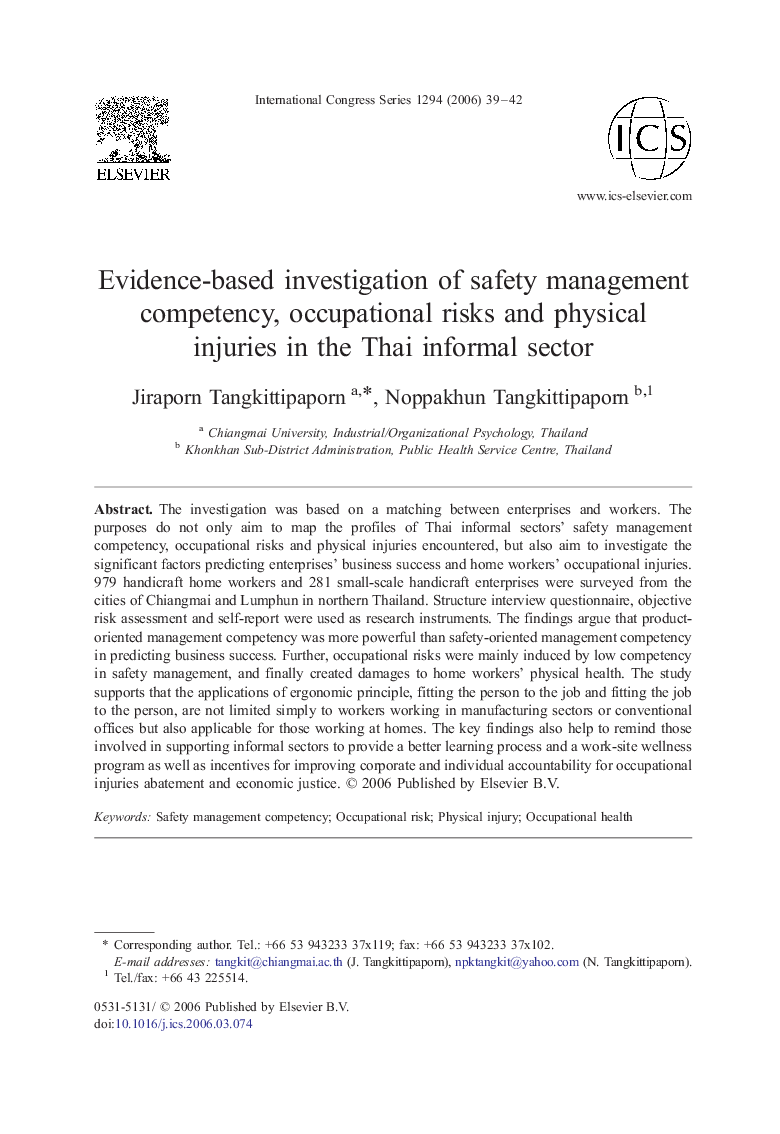| کد مقاله | کد نشریه | سال انتشار | مقاله انگلیسی | نسخه تمام متن |
|---|---|---|---|---|
| 2576888 | 1561363 | 2006 | 4 صفحه PDF | دانلود رایگان |

The investigation was based on a matching between enterprises and workers. The purposes do not only aim to map the profiles of Thai informal sectors' safety management competency, occupational risks and physical injuries encountered, but also aim to investigate the significant factors predicting enterprises' business success and home workers' occupational injuries. 979 handicraft home workers and 281 small-scale handicraft enterprises were surveyed from the cities of Chiangmai and Lumphun in northern Thailand. Structure interview questionnaire, objective risk assessment and self-report were used as research instruments. The findings argue that product-oriented management competency was more powerful than safety-oriented management competency in predicting business success. Further, occupational risks were mainly induced by low competency in safety management, and finally created damages to home workers' physical health. The study supports that the applications of ergonomic principle, fitting the person to the job and fitting the job to the person, are not limited simply to workers working in manufacturing sectors or conventional offices but also applicable for those working at homes. The key findings also help to remind those involved in supporting informal sectors to provide a better learning process and a work-site wellness program as well as incentives for improving corporate and individual accountability for occupational injuries abatement and economic justice.
Journal: International Congress Series - Volume 1294, June 2006, Pages 39–42